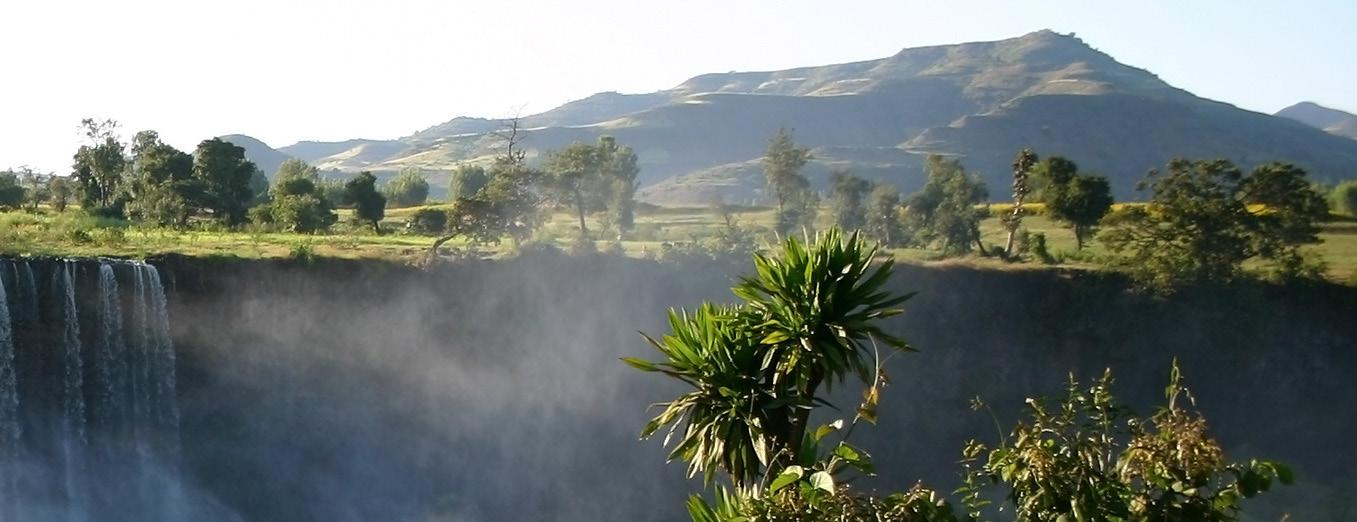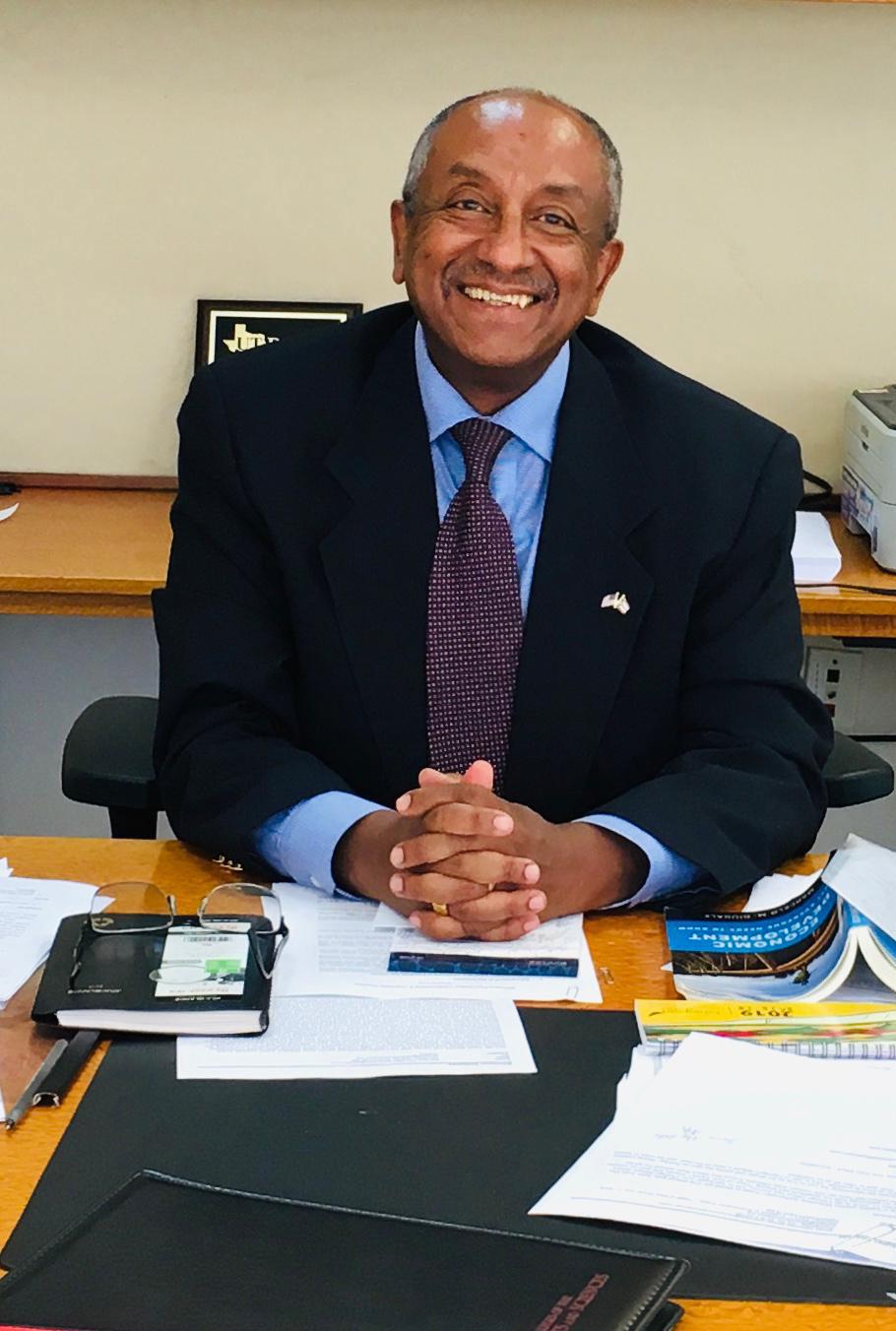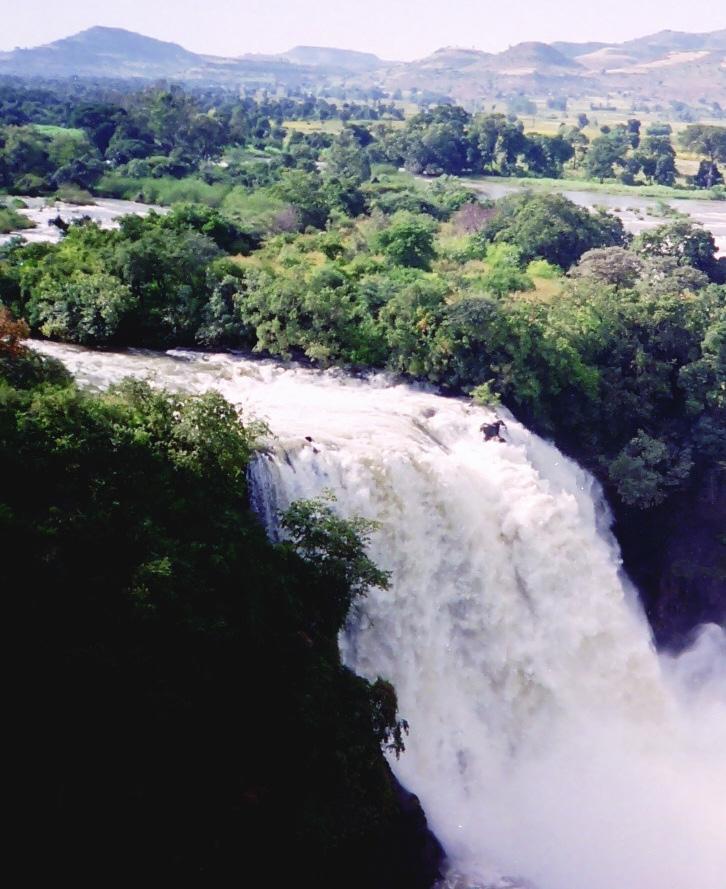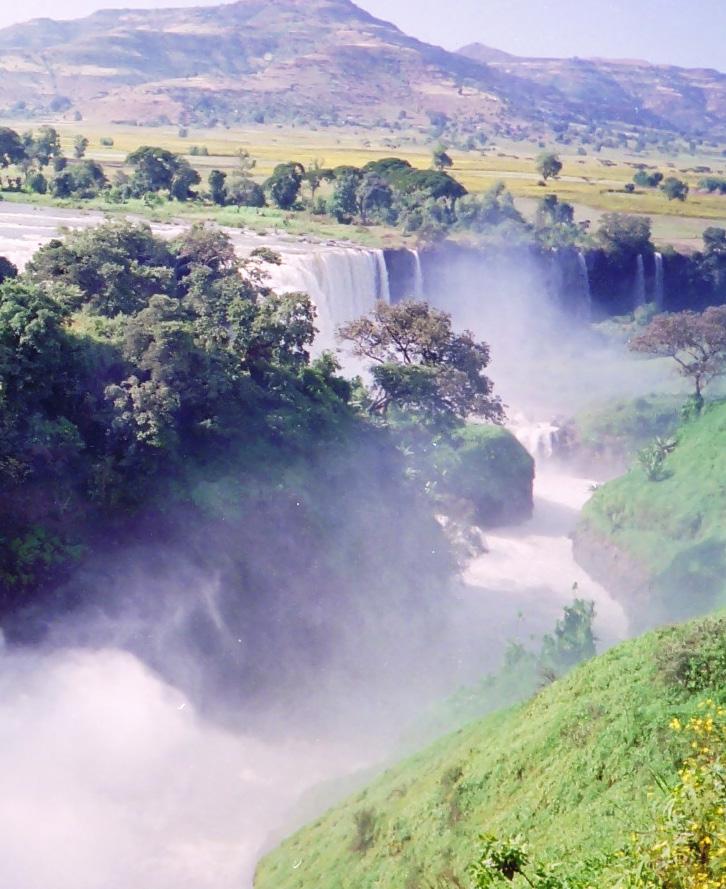
8 minute read
ETHIOPIA
ABN; Ethiopians from all walks of life are saying that GERD is “Our Dam”. What is your impression on this current Motto ?
Prof.Brook; The Dam which is entirely financed by the government and people of Ethiopia is a source of pride for all Ethiopians.
Advertisement
This massive project when it is soon realized would propel Ethiopia out of poverty. GERD will play a decisive role in making Ethiopia become a middle-income country.
The $5 Billion Dollar Dam, when completed will be the largest hydropower project in Africa and generating 6,000 MW doubling Ethiopia’s demand / need as well as allow it to export electricity to neighboring countries including Egypt and Sudan earning hard currency.
The motto ‘It’s my Dam’ is very timely, appropriate, meaningful reflecting the justified feelings and aspirations of millions of Ethiopians.
ABN; How do you describe Egypt’s fluctuating stand on GERD?
Prof.Brook; Egyptians stand on GERD is bizarre, baffling and not sincere at most. They refer to an outdated unjust one-sided colonial era 1929 and 1959 agreements to which Ethiopia was not a party. This approach and stand of Egypt trying to impose their will and the attitude ‘my way or the highway’ is unacceptable and will not work on Ethiopia. Applying pressure on Ethiopia to stop GERD is interfering in Ethiopia’s sovereignty, its right to use its resource for socioeconomic development purposes lifting its people from abject poverty. The solution for Egypt is they should return to the Comprehensive Frame Work Agreement process (CFA) and negotiate in good faith with Ethiopia and the other Nile riparian states.
The $5 Billion Dollar Dam
The Honorable Brook Hailu Beshah, PhD Honorary Consul of Ethiopia to Ohio & Surrounding States of MI, IN, KY and Western PA.


ABYSSINIA BUSINESS OUR DAM NETWORK ABN
IT'S ABN; What about the international water law? Does it stand in favor of Ethiopia?
Prof.Brook; Yes, the international water law stands in favor of Ethiopia for the following reasons. Ethiopia’s objective is to achieve equity and backed by winwin options. There is no instance where Ethiopia has a position that the entire Nile water generated from its territory fully belongs to Ethiopia.
Instead Ethiopia’s stand was always this water is a shared resource. In addition, Ethiopia always is on record saying it abides by the principles and sprit of international law governing transborder international rivers using and managing such resources. Contrary to this Egypt’s position is ‘Nile belongs to Egypt in its entirety’ which contradicts the principle of mutual use of the resource of the Nile. The position of Egypt falls short of logic and common sense and undermines the principle of transborder international rivers.
ABN; Many people argue that Ethiopia has not yet made effective diplomatic efforts to publicize the facts and legal procedures over the ongoing construction of GERD. What is your view on this?
Prof. Brook; I would say Ethiopia has scored success in undertaking effective diplomatic activities. But still, there are areas where we can do better. More work awaits Ethiopia. So far Ethiopia capitalizing on her moral ground has made a robust diplomatic activity explaining her case in key countries of Africa, the Middle East, and Europe. In addition, Ethiopia has approached multilateral fora like in the UN, EU and AU explain her case and galvanizing support which has resulted in considerable success.
Areas, where Ethiopia can improve, are in the following areas. Ethiopia has the option of utilizing Track- two Diplomacy as a supplement to the directly linked governmentled negotiation. Track- two diplomacy uses individuals outside the government to carry out negotiations. In some cases, this type of diplomacy has resulted in success in some countries.

Another channel that can be deployed to augment the channel of diplomacy is public diplomacy. A few years back Ethiopia has sent public diplomacy delegation to Egypt targeting the Egyptian public and elite presenting Ethiopia’s case. Especially now this delegation has to be revamped and sent back to Egypt. Equally, the invitation should be sent to the Egyptian public diplomacy group. The dialogue on both sides should continue.
The work of the high-level diplomats, experts, and advisors from the Ministry of Foreign Affairs and the Ministry of Water, Irrigation, and Energy, members of the GERD Technical Team engaged in this multi-layered complex negotiation processes would be best served if the above suggestions are implemented.
ABN; From a journalism point of view what should be done by Ethiopian media houses to reach the international community and become successful in diplomacy?
Prof.Brook; Ethiopia has asserted it’s right to use its own waters of the Nile. Ethiopia has expressed its position many times in communique released over the years by the various Ethiopian governments.
Ethiopia is filling and storing water in the GERD from its own legitimate share of the Nile waters. The filling and operation of GERD are not to contain water but filling it for the proper operation of the dam.
I would answer this question at two levels. First, I believe one area where Ethiopia needs to work on where it’s falling behind is not being adequately visible in foreign media. Ethiopian diplomats, professionals, experts should come out of their shells and be engaged in giving interviews, writing articles in the foreign press, academic journals, and most of all actively debating their Egyptian counterparts. The media stage is dominated by the Egyptians and this should urgently change. Ethiopians should not be passive bystanders but active advocates explaining GERD and the position of Ethiopia to the Arab and the rest of the world.
Secondly, Ethiopia media unlike the Egyptian is not yet well developed, not organized, and lacks a broadcasting division in Arabic and other global languages such as French, Spanish, German just to name a few. The Ethiopian media both government and private owned don’t have journalists who speak the mentioned languages. Ethiopia should quickly build teams of media experts to provide training, develop broadcasting materials on GERD, the Nile, package it, and broadcast it to Egypt, Sudan,
ABYSSINIA BUSINESS NETWORK ABN A B A Y
and the Arab world. Ethiopia’s case will be heard by millions of Egyptians as an alternative to the one-sided presentation of the mainstream Egyptian media. Ethiopia needs to reach out to the peoples of the area reassuring them Ethiopia does not have ill intentions except generate electricity and lift its people from abject poverty.

Ethiopia needs to be visible in foreign countries. Ethiopia has to do considerable work to bring specifically bringing its case to the Egyptian, Sudanese, Middle Eastern, and western media. The Ethiopian media should work towards exposing the Egyptian resistance to build GERD as creating unnecessary confusion and distraction contrary to international law.

getting Image
ABN; What do you think is the possible solution to resolve the current dispute between Ethiopia and Egypt over the filling and releasing of water of the GERD
Prof.Brook; To resolve the current impasse between Ethiopia and Egypt in regard to the filling of the GERD and the release of the Nile water. The following tangible solutions are suggested based on 1 to 6.
* GERD is a matter of survival for Ethiopia where 60 Million Ethiopians are without access to electricity. Egypt should accept Ethiopia’s right to use Nile to generate electricity.
* Egypt should stop its belligerence and return to the Comprehensive Frame Work Agreement process (CFA)
* Egypt should sign an agreement not to divert water to the Sinai Peninsula out of the African continent without the agreement of the 11 riparian countries especially Ethiopia which contributes 86% which is the lions share. * In addition, the following empirical facts as a package should be included to resolving the problem and they are: 1) Egypt to take account of Ethiopia’s contribution of 77 BCM per year. To make the GERD operational water has to reach 49.3 BCM. Egypt has to accept that Ethiopia would fill the Dam in 2 to 5 years. 2) Ethiopia will guarantee to Egypt … it will release incoming water flow if it is less or equal to 35BCM. 3) Ethiopia will guarantee the filling will take into account depending on yearly flow if it is close to or not to the threshold of 35BCM. 4)That the water if need be would be raised from 49.3BCM to 74BCM during rainy season. This is because Abay/ Blue Nile yields yearly on average 49 BCM on average. 5) Egypt will be reassured by the fact that Ethiopia has additional water that contributes an additional 27.7 BCM through its other tributaries like Baro, Dinder and Rahad, Tekeze, (plus there is the water inflow from the White Nile).
G E R D

getting Image
ABYSSINIA BUSINESS NETWORK

ABN
Hence Ethiopia will guarantee to Egypt water shortages would be unlikely; 6) Egypt should admit the fact it’s Aswan High Dam (HAD) on average has a full capacity of 160BCM stored water enough for Egypt’s water needs.
Points 1 to 6 should continue to play central roles to resolve the dispute. the Ethiopian media should dismantle the Egyptian misinformation and resistance to build GERD as creating unnecessary confusion and distraction contrary to international law.
ABN; Anything to add?
History is on the side of the Ethiopian people. The goodwill and humility of Ethiopians should not be interpreted as a sign of weakness because it is not. Ethiopia has every right to use its water resources to generate electricity. GERD, the Grand Ethiopian Renaissance Dam, is a matter of survival for Ethiopia. Once completed from its current 75% it will usher in indeed the much needed economic development and fulfill the energy demands of Ethiopia.
Professor Brook Hailu Beshah, PhD North Carolina State A&T University Department of History & Political Science.










